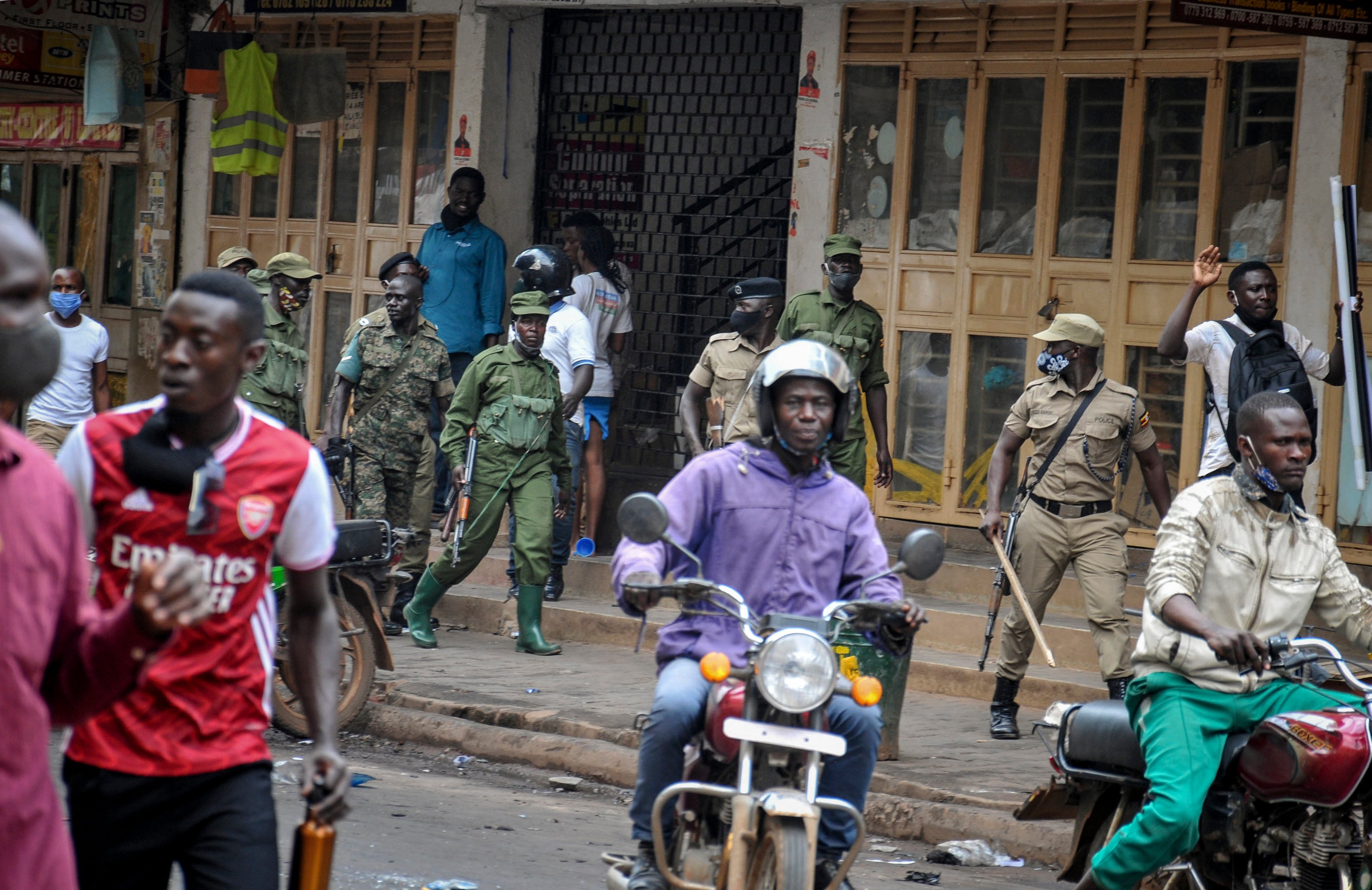Tensions rise in Uganda over abductions during elections
Ugandan authorities face pressure to find more than two dozen people allegedly abducted by security forces before or after last month’s presidential election, whose outcome has been rejected by the main opposition candidate as fraudulent

Your support helps us to tell the story
From reproductive rights to climate change to Big Tech, The Independent is on the ground when the story is developing. Whether it's investigating the financials of Elon Musk's pro-Trump PAC or producing our latest documentary, 'The A Word', which shines a light on the American women fighting for reproductive rights, we know how important it is to parse out the facts from the messaging.
At such a critical moment in US history, we need reporters on the ground. Your donation allows us to keep sending journalists to speak to both sides of the story.
The Independent is trusted by Americans across the entire political spectrum. And unlike many other quality news outlets, we choose not to lock Americans out of our reporting and analysis with paywalls. We believe quality journalism should be available to everyone, paid for by those who can afford it.
Your support makes all the difference.Ugandan authorities face pressure to find more than two dozen people allegedly abducted by security forces before or after last month's presidential election, whose outcome has been rejected by the main opposition candidate as fraudulent.
Internal Affairs Minister Gen. Jeje Odongo told lawmakers on Thursday that at least 31 of 44 alleged kidnapping victims “are yet to be traced.” That admission has drawn consternation as many Ugandans point out that the people were taken at night in vans without license plates.
“We undertake to investigate each and every one of the reported incidents," Odongo said. It was the first time a top Ugandan official had acknowledged the reported abductions
Some lawmakers, including the parliamentary speaker, had asked authorities for an explanation.
Authorities deny targeting civilians, and President Yoweri Museveni is often credited with presiding over relative peace and security. But the election season was the most violent in years, with security forces accused of cracking down on supporters of Bobi Wine Museveni's main challenger. Police accused his supporters of planning riots that could lead to regime change.
The opposition leader asserted to reporters on Thursday that 3,000 of his followers are missing, either in jail or unaccounted for after alleged abductions by security forces. That could not immediately be verified.
Attorneys for Wine, a popular singer whose real name is Kyagulanyi Ssentamu, this week filed a legal challenge with the Supreme Court seeking to nullify Museveni’s victory and bar him from running for the presidency again. It is unclear when oral arguments will start.
Museveni has never lost in the courts, and analysts say the nine-judge panel is not likely to rule against him.
Museveni was declared the winner of the election with 58% of the vote while Wine had 35%. The opposition leader called those results fraudulent, citing soldiers allegedly stuffing ballot boxes, casting ballots for people and chasing voters away from polling stations.
Museveni has dismissed allegations of vote-rigging, calling the election “the most cheating-free” since independence from Britain in 1962.